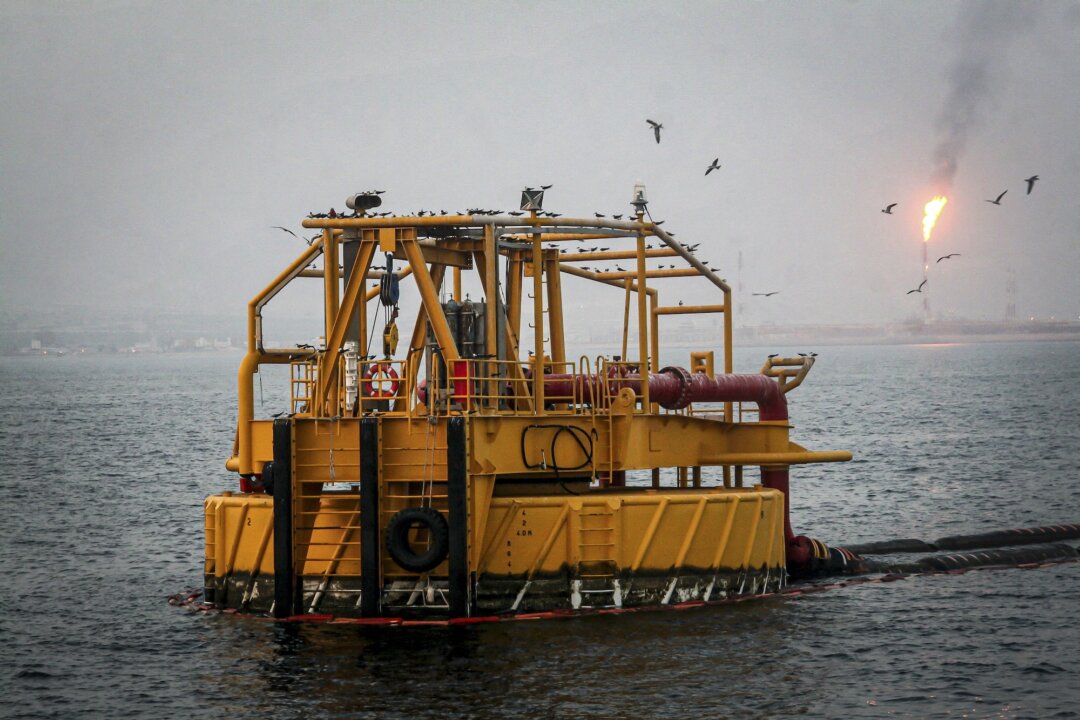The aim is to choke off revenue streams backing Iran’s nuclear ambitions and its network of terror proxies, according to the Treasury Department.
The U.S. government has imposed sweeping sanctions on an Iranian liquefied petroleum gas (LPG) magnate and his sprawling international network of companies and affiliates, and accused them of facilitating hundreds of millions of dollars in oil and gas exports that fund Iran’s nuclear weapons program and terror proxies across the Middle East.
The action, carried out by the Treasury Department’s Office of Foreign Assets Control (OFAC) and announced on April 22, blocks all U.S.-linked assets tied to Seyed Asadoollah Emamjomeh and his network, prohibiting Americans from doing business with them.
“Emamjomeh and his network sought to export thousands of shipments of LPG—including from the United States—to evade U.S. sanctions and generate revenue for Iran,” Secretary of the Treasury Scott Bessent said in a statement. “The United States remains committed to holding accountable those who seek to provide the Iranian regime with the funding it needs to further its destabilizing activities in the region and around the world.”
The designations are part of President Donald Trump’s “maximum pressure” campaign to deny Iran all paths to a nuclear weapon, dismantle its terror networks, and cripple its regional influence through intensified sanctions, law enforcement, and diplomatic isolation.
The individuals and entities sanctioned are accused of contributing to revenue streams used by the Islamic Revolutionary Guard Corps (IRGC) and its regional proxies, including terror groups Hezbollah, the Houthis, and Hamas.
For more than a decade, Seyed Asadoollah Emamjomeh and his son, Meisam Emamjomeh—who also faces sanctions—have operated a shadow LPG empire via a web of companies based in Iran, the United Arab Emirates, and the United Kingdom, according to the Treasury Department.
The sanctioned firms under their control include: Caspian Petrochemical FZE, Pearl Petrochemical FZE, and Worldwide LPG Limited. At least nine other Iran-based companies—allegedly used to disguise shipments and evade sanctions—have also been designated as part of Treasury’s actions.
Any property or interests in property of the named individuals or entities within U.S. jurisdiction are now frozen. Secondary sanctions could be applied to non-U.S. firms that continue to transact with the blacklisted entities.
The move comes as the United States and Iran engage in negotiations over Iran’s nuclear program.
While both sides have signaled progress during talks in Muscat and Rome this month, the Treasury’s actions underscore Washington’s stance that sanctions relief will not precede verifiable curbs on Tehran’s nuclear and ballistic missile ambitions.
Monday’s action follows earlier April designations targeting Iranian entities tied to the Atomic Energy Organization of Iran (AEOI) and its enrichment programs.
Preventing Iran from acquiring a nuclear weapon has been a central pillar of Trump’s foreign policy, though he has signaled openness to permitting civilian nuclear facilities as long as uranium enrichment is significantly reduced.
“I’m for stopping Iran, very simply, from having a nuclear weapon,” Trump told reporters recently. “They can’t have a nuclear weapon. [But] I want Iran to be great and prosperous and terrific.”
Iran maintains that its nuclear program is peaceful. However, a recent U.N. watchdog report indicated that Tehran’s enrichment levels are near weapons-grade, raising alarm in Washington, Tel Aviv, and European capitals. U.S. officials have warned that Iran may be just months away from being able to assemble several nuclear warheads.
Meanwhile, Iranian Foreign Minister Abbas Araghchi has said the talks with U.S. envoy Steve Witkoff have been held in a “constructive environment” and that the overall process is “moving forward.”
A third round of talks is set for April 26 in Oman.

